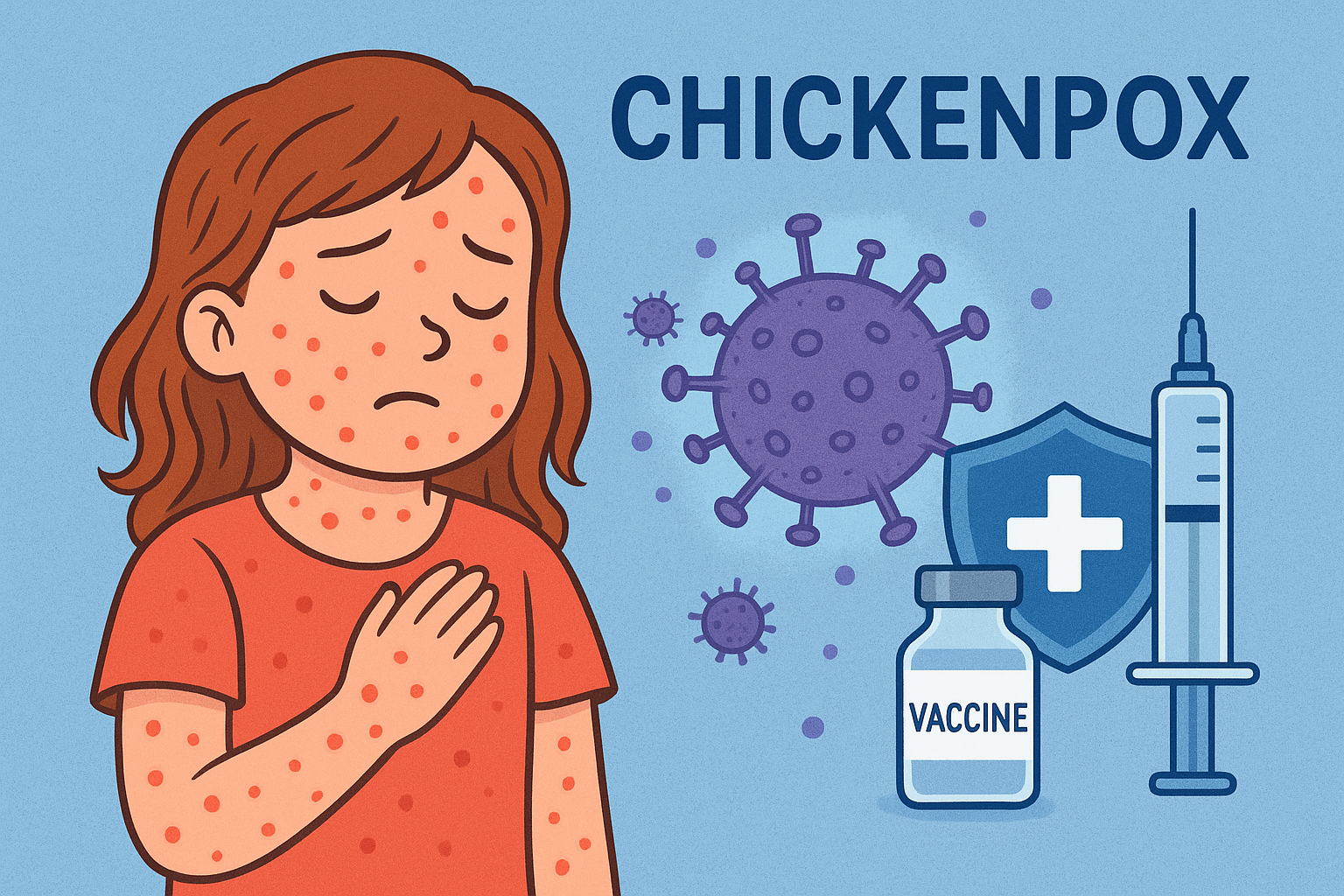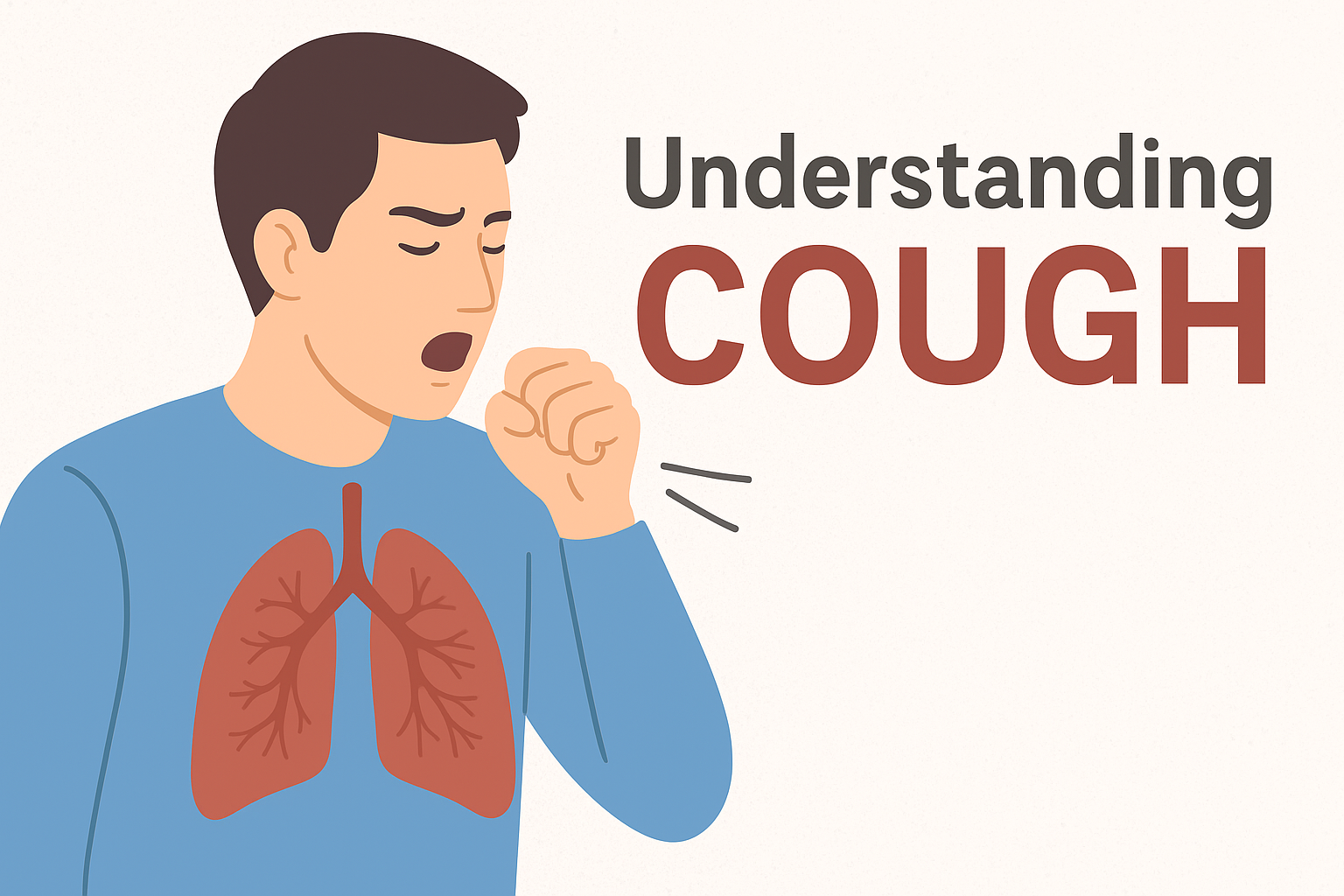hickenpox, medically known as Varicella, is a highly contagious viral infection that mainly affects children but can also occur in adults. Although it is usually a mild illness, chickenpox can sometimes lead to serious complications, especially in infants, adults, and people with weak immune systems.
In this blog, we will discuss the causes, symptoms, complications, prevention, and treatment of chickenpox in detail.
What is Chickenpox?
Chickenpox is caused by the varicella-zoster virus (VZV). It spreads very easily from person to person through respiratory droplets, direct contact with fluid from blisters, or contaminated surfaces.
Before the introduction of the chickenpox vaccine, almost every child had chickenpox at some point. Today, widespread vaccination has greatly reduced its occurrence worldwide.
Symptoms of Chickenpox
Symptoms usually appear 10–21 days after exposure to the virus and last for 5–10 days. Common signs include:
- Flu-like symptoms: fever, tiredness, loss of appetite, and headache.
- Itchy skin rash: usually starts on the chest, back, or face, and then spreads.
- Red spots to blisters: rash progresses from small red spots → fluid-filled blisters → scabs.
- Intense itching: one of the most uncomfortable symptoms.
How Chickenpox Spreads
Chickenpox is extremely contagious. A person with chickenpox can spread the virus from:
- 1–2 days before rash appears
- Until all blisters have crusted over
People who have never had chickenpox or the vaccine are most at risk.
Complications of Chickenpox
While chickenpox is often mild, it can sometimes cause serious problems, especially in adults, newborns, and people with weak immune systems. Possible complications include:
- Bacterial infections of the skin
- Pneumonia
- Dehydration
- Encephalitis (brain inflammation)
- Reye’s syndrome (when aspirin is given to children with viral illness)
Diagnosis of Chickenpox
Chickenpox is usually diagnosed based on:
- Medical history and symptoms
- Physical examination of the rash and blisters
Lab tests are rarely needed but can confirm the diagnosis in complicated cases.
Treatment of Chickenpox
Most cases of chickenpox do not require hospitalization. Treatment mainly focuses on relieving symptoms:
- Rest and hydration: Drink plenty of fluids.
- Itch relief: Calamine lotion, antihistamines, and oatmeal baths.
- Fever control: Paracetamol (avoid aspirin in children).
- Antiviral medications: Acyclovir may be prescribed for adults, severe cases, or those at higher risk.
Prevention of Chickenpox
The varicella vaccine is the best way to prevent chickenpox. It is safe, effective, and provides long-lasting protection.
- Two doses are recommended for children, adolescents, and adults who have never had chickenpox.
- Vaccination also reduces the risk of severe disease and complications.
Additionally, people with chickenpox should:
- Stay at home until blisters scab over.
- Avoid contact with newborns, pregnant women, and immunocompromised individuals.
Chickenpox vs. Shingles
After recovery, the varicella-zoster virus stays dormant in the body and can reactivate later in life as shingles (Herpes Zoster), a painful skin condition. Vaccination against chickenpox and shingles helps reduce this risk.
Key Takeaway
Chickenpox may seem like a common childhood illness, but it can sometimes lead to serious complications. Vaccination, early management of symptoms, and good hygiene remain the best strategies to protect yourself and your family.
If you or your child develops chickenpox, consult a healthcare provider for proper care and to prevent spreading the infection to others.



